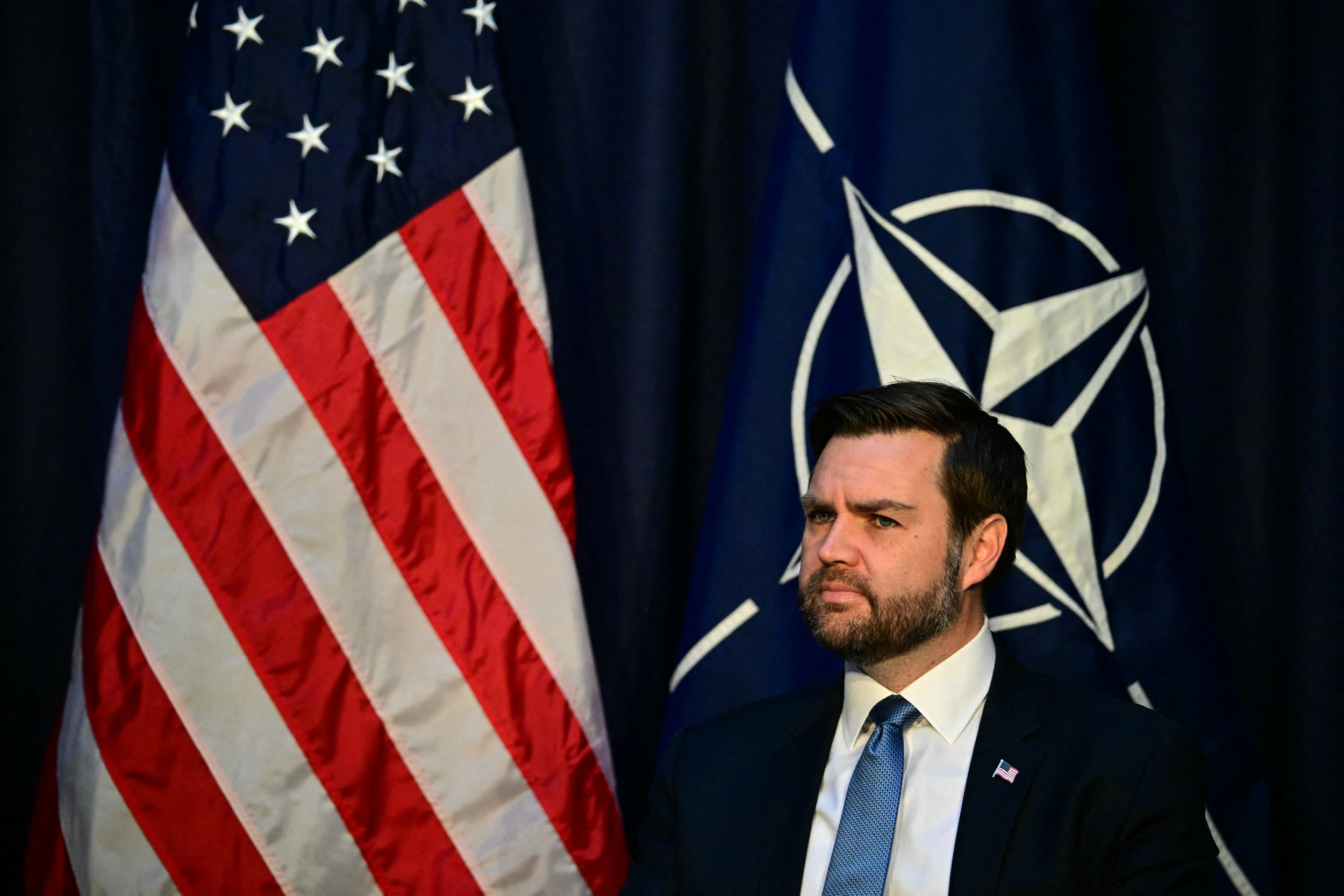
When JD Vance stood before European leaders in Munich this past February, warning that free speech was “in retreat” across the West, his remarks were met with audible discomfort in the room. The gravest threat to democracy in Europe, he argued, wasn’t external—it was the internal erosion of liberal principles like free expression.
“If you are running in fear of your own voters, there is nothing America can do for you,” the U.S. vice president told a visibly stunned room of diplomats.
At the time, his comments were widely dismissed in both U.S. and European policy circles as either populist pablum or unnecessarily provocative. German Defense Minister Boris Pistorius called them “not acceptable.” Vance had cited arrests in the UK and restrictions under the European Union‘s Digital Services Act as examples.
Months later, however, his warnings seem less abstract.
In England this week, Hamit Coskun was convicted and given a $325 fine for burning a copy of the Quran in public—a case that sparked debate not only for the act itself but for its broader implications. Former immigration minister Robert Jenrick accused the UK of enforcing “a two-tier justice system,” suggesting similar punishment would be unlikely had the burned text been a Bible.
“Would I have been prosecuted if I’d set fire to a copy of the Bible outside Westminster Abbey? I doubt it,” Jenrick said. The National Secular Society, which supported Coskun on his case, also condemned the ruling, calling it “a significant blow to freedom of expression” and “a concerning capitulation to Islamic blasphemy codes.”
Aaron Chown/PA via AP
The case echoed examples Vance had raised in Munich, including the case of a Swedish man prosecuted for burning a Quran during a protest — in a ruling handed down five days after another man also being prosecuted over the incident was shot dead. In both cases, Judge Göran Lundahl ruled that “freedom of expression does not constitute a free pass to do or say anything”—a line Vance saw as emblematic of a retreat from Enlightenment values.
In the UK, debates over religious speech have reignited calls for and against blasphemy-style protections. Jenrick wrote on X that the ruling “revives a blasphemy law” repealed by Parliament in 2008 after a secularist campaign. Writing in The Spectator, conservative commentator Douglas Murray warned that the Labour government was “reconsidering the introduction of a blasphemy law”—an idea the previous Conservative administration had rejected outright. He argued that efforts to define and police “Islamophobia” were increasingly blurring into efforts to criminalize offensive speech.
“You may march through the centre of London or Stockholm week after week supporting groups that want to annihilate the Jewish race—but don’t get caught upsetting Muslims,” Murray wrote. “These are the rules of the game and everyone knows it.”
Prime Minister Keir Starmer’s spokesman, Dave Pares, responded Tuesday: “We have no blasphemy laws in England and there are no plans to introduce any.”
Diverging Philosophies
Vance’s speech in Munich drew a stark contrast between U.S. and European views on free speech. In the U.S., the First Amendment prohibits government restrictions on speech in most cases, even when it’s offensive, hateful or inflammatory. The legal default is to protect speech unless it causes direct harm or incites violence—a principle that has been fiercely defended across party lines for generations.

Photo by Tobias SCHWARZ / AFP) (Photo by TOBIAS SCHWARZ/AFP via Getty Images
European nations, by contrast, typically criminalize “hate speech,” broadly defined as language that insults or incites hatred against protected groups. Supporters argue such laws maintain social harmony and prevent violence. But as Vance warned, these protections can suppress dissent, satire and religious or political expression.
Resistance to European speech laws is increasingly reflected at the ballot box. Populist and nationalist parties—often critical of immigration and political censorship—are gaining traction, mirroring trends seen in the U.S. over the last decade. In Poland, Trump-backed conservative Karol Nawrocki narrowly won the presidency last weekend. In Germany, the far-right Alternative for Germany (AfD) is polling at record highs.
Vance’s remarks weren’t merely a defense of American legal norms—they were a direct challenge to a Western consensus that increasingly treats “hate speech” as a criminal offense, even when no violence is incited.
Ideology and Influence
Back in February, many in Munich dismissed Vance’s speech as alarmist or extreme. But the controversies that followed—over blasphemy, protest, and political expression—have sharpened the very divide he described. To critics, Vance misunderstood Europe’s emphasis on social cohesion. To supporters, he said what others wouldn’t: that a democracy afraid of free speech is a democracy in retreat.

Kayla Bartkowski/Getty Images
“His critiques of Europe derive at least in part from his ideological convictions,” John Fousek, a professor in international relations at New York University, told Newsweek.
Fousek explained that while Vance’s views are grounded in constitutional arguments, they also reflect a broader worldview. “At the core of those convictions is American nationalism, and more specifically, Christian nationalism. These beliefs likely shape his views on the U.S. relationship with the ‘outside’ world more generally.”
Responding to Vance’s criticism, German Chancellor Olaf Scholz emphasized the historical roots of Europe’s approach: “Today’s democracies in Germany and Europe are founded on the historic awareness that democracies can be destroyed by radical anti-democrats. That’s why we’ve built institutions to defend them—and rules that protect, not limit, our freedoms.”
French Foreign Minister Jean-Noël Barrot also weighed in. “No one is required to adopt our model,” he posted on X. “But no one can impose theirs on us. Freedom of speech is guaranteed in Europe.”
